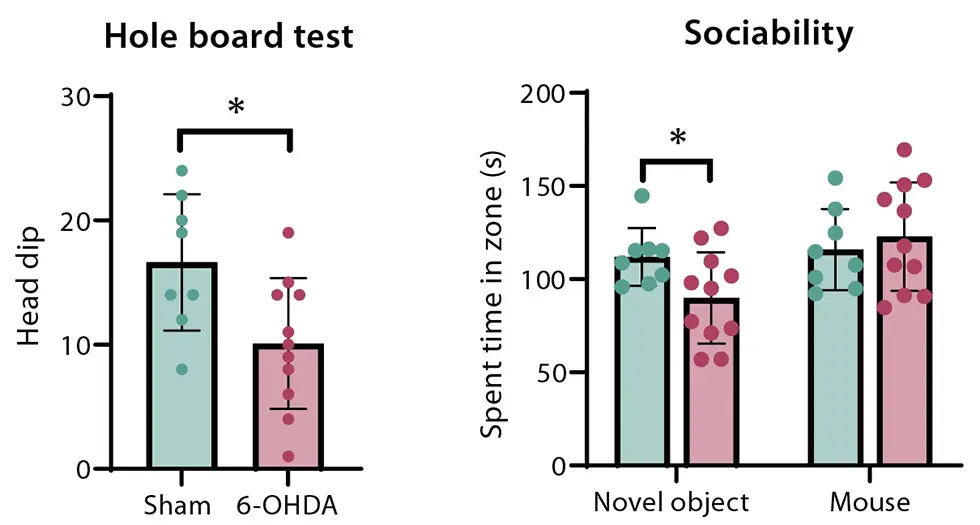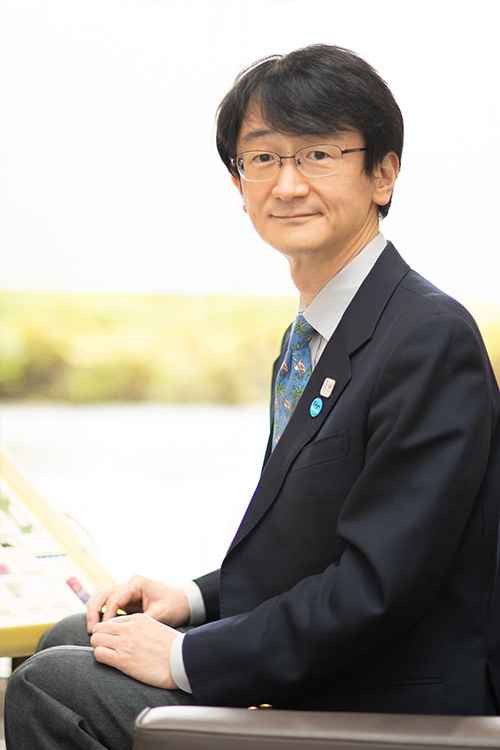
- HOME
- Addictive Substance Project
Addictive Substance Project
Addictive Substance Project
Achievements in 2024
Dopamine plays an important role in motor control as well. Impairment of the striatal dopaminergic projection causes Parkinson’s disease, which shows mainly motor symptoms. In addition to motor symptoms, patients of Parkinson’s disease show apathy, a state of low motivation that manifests as a decrease in goal-directed behaviors. We prepared model mice of Parkinson’s disease by 6-hydroxydopamine injection into bilateral dorsal striatum. The model mice showed impairment of novelty seeking as a symptom related to the cognitive apathy component (Int J Mol Sci 2024). This study indicated that depletion of the dorsal striatal dopaminergic injection may be involved in the onset of cognitive apathy.

Publications
Papers in 2024
- Okitsu M, et al. (2024) “Mouse model of Parkinson’s disease with bilateral dorsal striatum lesion with 6-hydroxydopamine exhibits cognitive apathy-like behavior.” Int J Mol Sci 25:7993.
- Ide S, et al. (2024) “Caenorhabditis elegans for opioid addiction research.” Curr Opin Neurobiol 88:102914.
- Kosaki Y, et al. (2024) “Gamma-aminobutyric acid type A receptor beta1 subunit gene polymorphisms are associated with the sedative and amnesic effects of midazolam.” Mol Brain 17:70.
- Kang Y, et al. (2024) “TMEM132C rs7296262 single-nucleotide polymorphism is significantly associated with nausea induced by opioids administered for cancer pain and postoperative pain..” Int J Mol Sci 25:8845.
- Araida J, et al. (2024) “rs12411980 single-nucleotide polymorphism related to PRTFDC1 expression is significantly associated with phantom tooth pain.” Mol Pain 2:17448069241272215.
Key papers
- Ide S, et al. (2017) “Distinct roles of opioid and dopamine systems in lateral hypothalamic intracranial self-stimulation.” Int J Neuropsychopharmacol 20:403.
- Kashii H, et al. (2023) “Tsc2 mutation rather than Tsc1 mutation dominantly causes a social deficit in a mouse model of tuberous sclerosis complex.” Hum Genomics 17:4.
